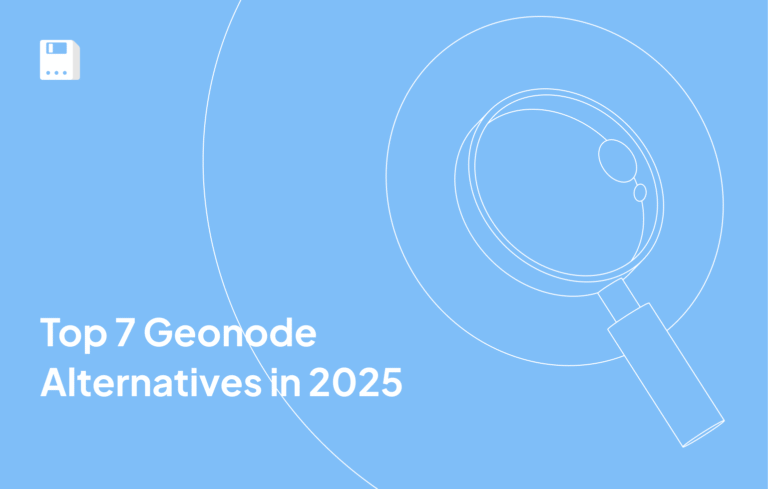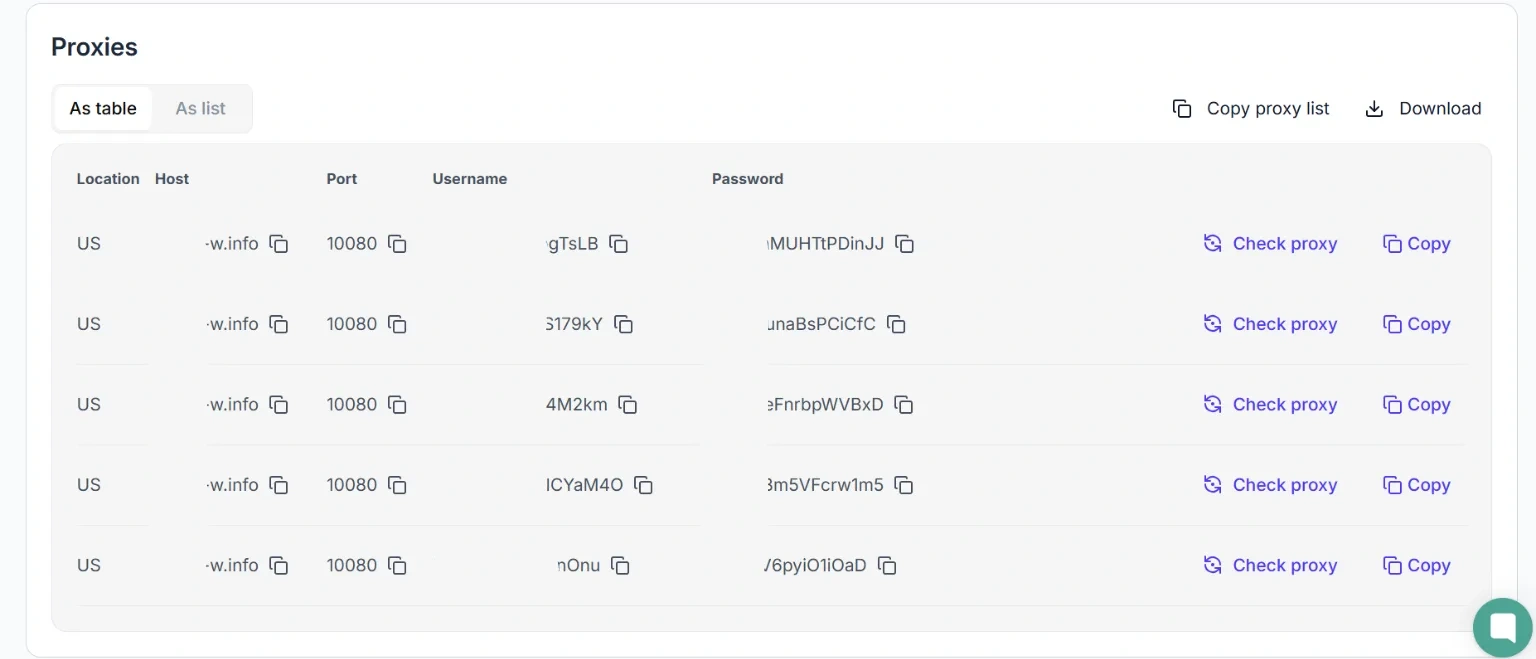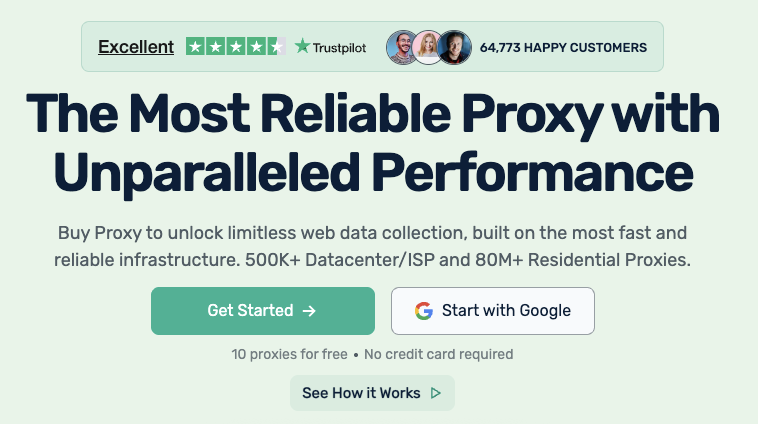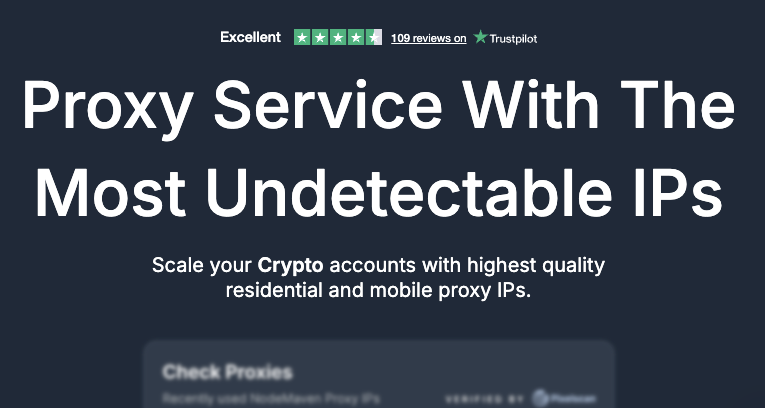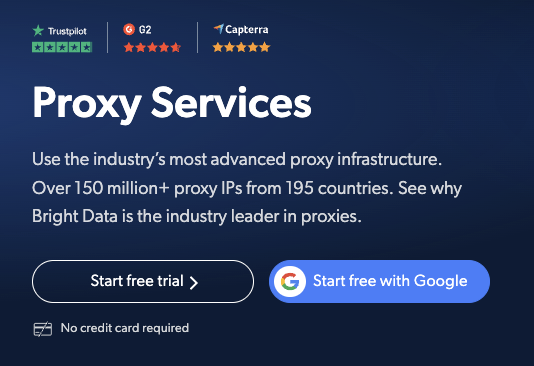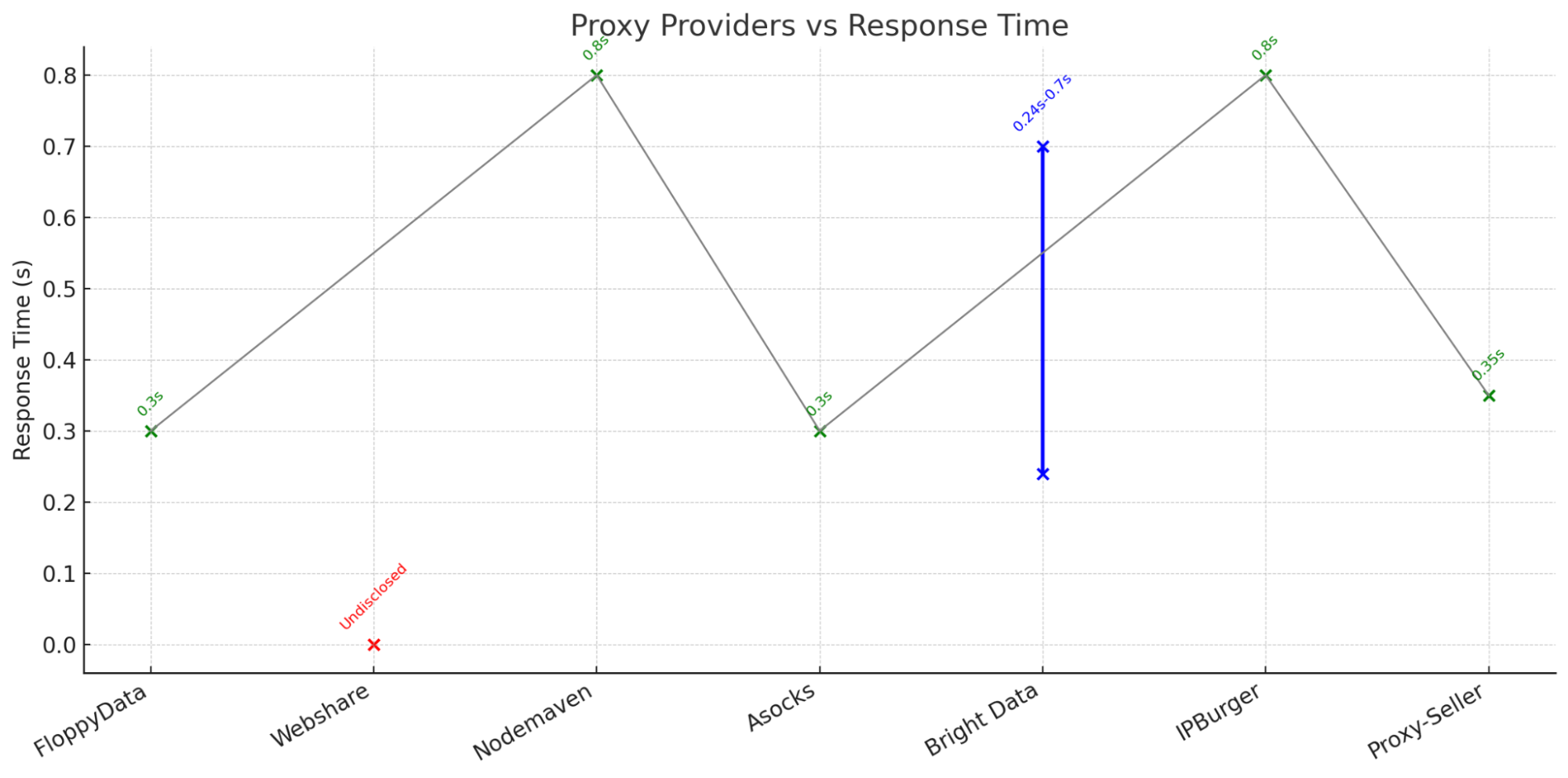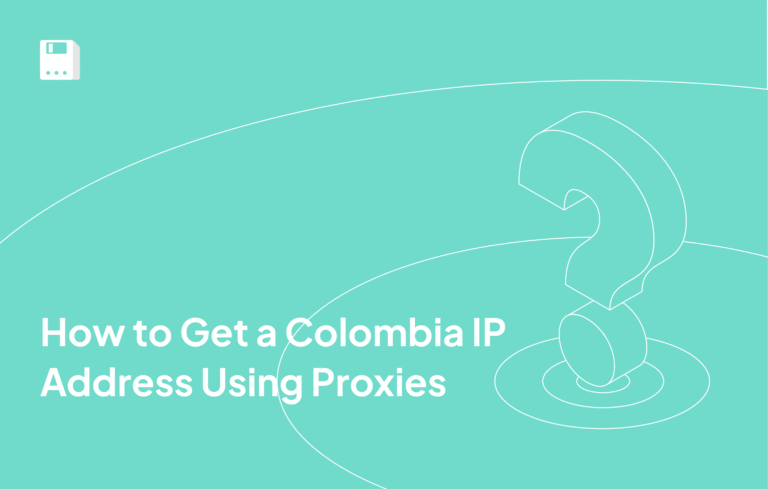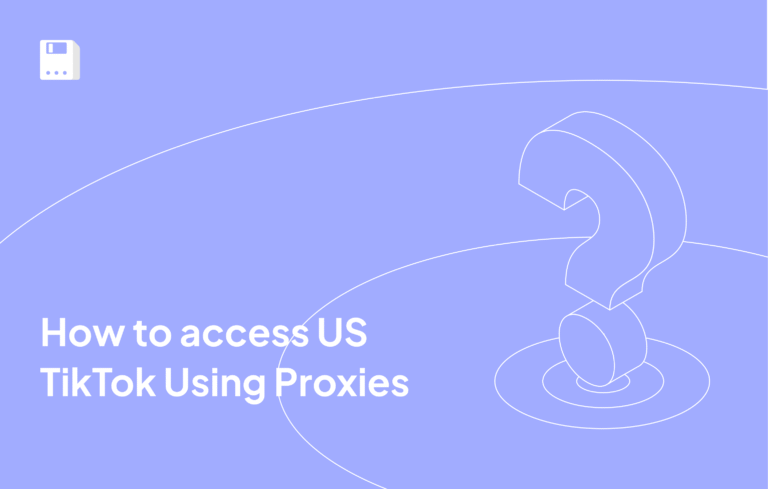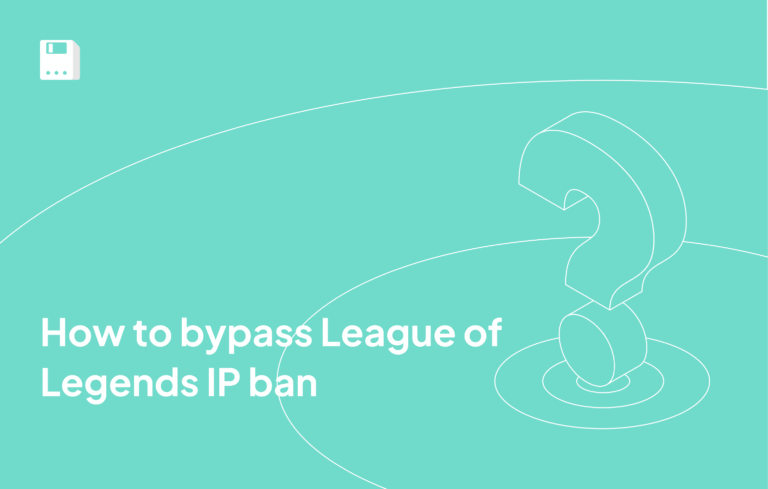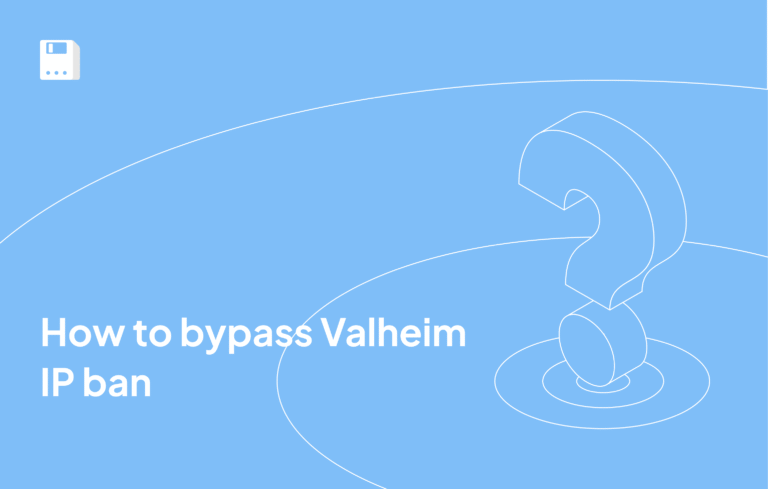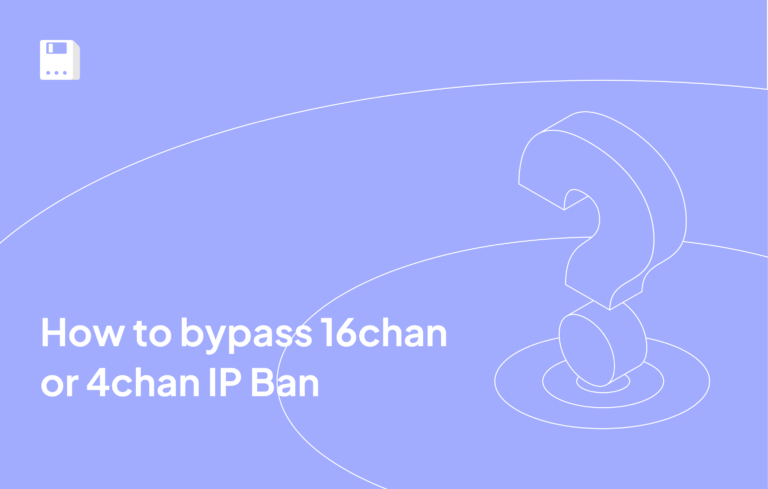If you’re reading this, chances are you used Geonode, which seemed promising at first glance, but after digging deeper, you’re not so sure it’s the perfect fit.
Sure, its pay-as-you-go model and unlimited bandwidth sound great on paper. But once you start working with it, especially on demanding projects, issues like sluggish upload speeds, latency issues, and the lack of ISP or mobile proxy support can quickly become dealbreakers.
The good news is that you’re not stuck.
There are several Geonode alternatives that outperform it where it matters most.
I’ve researched and rounded up some of the best options and laid them all out for you with all the essential details and more.
Let’s start with the TL;DR table below for a quick overview.
TL;DR
| Provider | IP Pool Size | Countries Covered | Starting Price | Free Trial | Proxy Types |
| FloppyData | 65M+ | 195+ | $2.95/GB | ❌ No | Residential, Mobile, Datacenter, ISP |
| Webshare | 80M+ | 195+ | $2.99/month | ❌ No | Residential, ISP, Datacenter |
| Nodemaven | 30M+ | 150+ | €30/month | ❌ No | Residential, Mobile |
| Asocks | 7M+ | 150+ | $6/GB | ❌ No | Residential, Mobile, Datacenter |
| Bright Data | 150M+ | 195+ | $8.40/GB | ✅ Yes (7 days) | Residential, Mobile, Datacenter, ISP |
| IPBurger | 100M+ | 195 | $4.58/month | ❌ No | Residential, Fresh, Dedicated, Mobile |
| Proxy-Seller | 40M+ | 220 | $7.65/month | ❌ No | Residential, Mobile, Datacenter, ISP |
What is Geonode?
Geonode is a Singapore-based proxy service that came out of its beta phase not long ago, which might explain why you haven’t heard of it much.
I tested their network recently, and while it’s easy to use, it’s also pretty limited in scope.
They only provide residential and datacenter proxies.
Now that’s fine if you only need the basics, but if you’re looking for broader coverage, you’ll feel the restrictions quickly.
Their proxy pool currently holds over two million IP addresses across 140 countries, and you can do geo-targeting down to the country, city, or ISP level.
Now, what about performance? Honestly, I wasn’t expecting much, and I wasn’t surprised either. Since these are residential proxies sourced from ISPs, speeds varied wildly in my tests.
During testing, some IPs clocked around 20 Mbps, while others crawled at just 2 Mbps. That inconsistency makes Geonode not the best choice for anything latency-sensitive, like gaming or high-definition streaming.
Though for basic data scraping or social media automation, you’ll probably be fine, but don’t expect datacenter-level speeds.
Key Features
| Features | Details |
| Total Available IPs | 2 Million+ |
| Proxy Types | Residential, Datacenter |
| Geographic Distribution | 140+ countries |
| IP Targeting Precision | Country, city, state, and ISP level targeting |
| ASN/Coordinates Targeting | Yes |
| Free Trial | No |
| Unlimited bandwidth | No |
| Success Rate | 99% |
| Average Response Time | 0.5s |
| IP Rotation | Auto |
| Supported Protocols | HTTP, HTTPS, SOCKS5 |
| 24/7 Support | Yes (email, form, call, Discord) |
Pricing Details
The plans for residential proxies are as follows:
- Pay As You Go: $3/GB
- Starter: $50/month (50 GB)
- Growth: $200/month (267 GB)
- Business: $500/month (1000 GB)
Pros & Cons
| Pros | Cons |
| Affordable proxies | Only residential and datacenter proxies available (no ISP or mobile) |
| Unused bandwidth rolls over to the next billing cycle | Average and inconsistent speeds |
| No free trial |
Top 7 Geonode Alternatives
So that’s the picture. If you need more flexibility or better performance, you’ll want to look elsewhere. So, let’s introduce you to some of the best Geonode alternatives.
1. Floppydata (Best Geonode Alternative)
If you’re searching for the best Geonode alternative, I can say from my own testing that FloppyData deserves the top spot.
Here are the reasons that make me say that.
First and foremost is the quality of its proxies and the reliability of its network.
Floppydata IPs come from actual devices rather than rented IP space, which means fewer detection issues and a cleaner experience overall. When I stress-tested these proxies, they maintained a 99.8% success rate on web requests and stayed online with 99.99% uptime.
In addition, FloppyData supports both HTTP(S) and SOCKS5 protocols, and there’s no limit on concurrent sessions.
I also liked its granular geo-targeting options, which allowed me to filter down by country, city, ASN, or ZIP code for better control over my campaigns.
In terms of performance, I ran a week-long scraping test with continuous heavy pulls on residential proxies, and the speed stayed consistent without a single drop. Since there’s no traffic cap holding me back, I got full value for every gigabyte I used.
FloppyData also makes life easier with its pay-as-you-go pricing model, crypto payment support, and helpful extras like a Chrome extension, a free proxy checker, and a free proxy server list.
You can even manage multiple proxy plans under one subscription, track billing in real time, and upgrade or downgrade without fuss.
However, FloppyData has a slightly smaller IP pool size (65 Million+) as compared to some of its competitors, like Oxylabs.
Key Features
| Features | Details |
| Total Available IPs | 65 Million+ |
| Proxy Types | Residential, Mobile, Datacenter, ISP |
| Geographic Distribution | 195+ countries |
| IP Targeting Precision | Country, City, State, ASN / ISP targeting |
| ASN/Coordinates Targeting | Available |
| Free Trial | No |
| Unlimited bandwidth | Yes |
| Success Rate | 99.99% |
| Average Response Time | 0.3s |
| IP Rotation | Automatic, Per Request |
| Supported Protocols | HTTP, HTTPS, SOCKS5 |
| 24/7 Support | Yes (Live chat, Email, Telegram) |
Pricing Details
- Residential proxy: Starts at $2.95/GB
- Mobile proxy: Starts at $2.95/GB
- Datacenter proxy: Starts at $0.90/GB
- ISP Proxies: Starts at $5/IP
- High volume packages: Starts at $2/GB
Pros & Cons
| Pros | Cons |
| 99.9% network uptime | Slightly smaller IP pool than competitors like Oxylabs, and NetNut |
| Extremely fast response times (0.3s avg) | No free trial |
| Quick setup & ridiculously low error rates | |
| Little to no learning curve, easy-to-navigate user interface | |
| Free public proxy list | |
| Bandwidth and concurrency is unlimited | |
| Rotating and sticky sessions supported | |
| Proxy checker and Chrome extension come free | |
| Full anti-detect browser compatibility | |
| PAYG + crypto payment support | |
| There’s no expiry on unused data | |
| Live support via Discord, email, and chat |
2. Webshare
Webshare is a Silicon Valley-based proxy provider that’s been around since 2018.
In late 2022, Oxylabs acquired it, but the service still operates as a separate brand.
From the beginning, its main product has been datacenter proxies.
However, now ISP proxies have become an important part of its catalog too, while residential proxies are a more recent addition.
I tried Webshare’s datacenter IPs and, even though many are shared with other users, the network was stable and fast enough for most scraping or automation tasks.
Moreover, the provider gives every registered user 10 free proxies, which is a nice way to test the waters.
That said, Webshare’s filtering options only go down to the country level. There’s no city, ASN, or ZIP targeting available.
Key Features
| Features | Details |
| Total Available IPs | 80 Million+ |
| Proxy Types | Residential, ISP, Datacenter |
| Geographic Distribution | 195+ countries |
| IP Targeting Precision | Country-level targeting only |
| ASN/Coordinates Targeting | No |
| Free Trial | No, Free plan with 10 proxies |
| Unlimited bandwidth | Yes |
| Success Rate | 99.97% |
| Average Response Time | Undisclosed |
| IP Rotation | Automatic |
| Supported Protocols | HTTP, SOCKS5 |
| 24/7 Support | Yes |
Pricing Details
- Proxy server (datacenter): starts at $2.99/month (100 IPs)
- Static residential: starts at $6/month (20 IPs)
- Rotating residential: starts at $3.50/month (1 GB)
Pros & Cons
| Pros | Cons |
| 10 free proxies for every registered user | No city, ASN, or ZIP level targeting |
| Flexible IP refresh and replacement features | No pay-as-you-go plan |
| Affordable pricing if extra features are managed carefully |
3. Nodemaven
NodeMaven provides residential and mobile proxies across more than 150 locations.
And while its pool isn’t massive, the IP quality is consistent.
I found its sticky sessions especially impressive for letting me hold the same IP for up to 24 hours. This was one of the longest, if not the longest, sticky sessions I have seen a proxy provider offer.
Another unique thing about Nodemaven is that it uses a proprietary filtering algorithm to weed out unreliable IPs by combining data from multiple sources and applying statistical checks to maintain quality.
When I sampled around 20 countries at random, the IPs I received matched the locations I selected. This shows that the filtering algo actually works.
Key Features
| Features | Details |
| Total Available IPs | 30 Million+ |
| Proxy Types | Residential, Mobile |
| Geographic Distribution | 150+ countries |
| IP Targeting Precision | City, country, and ASN-level targeting |
| ASN/Coordinates Targeting | Available |
| Free Trial | No |
| Unlimited bandwidth | Yes |
| Success Rate | 99.54% |
| Average Response Time | 0.8s |
| IP Rotation | Automatic |
| Supported Protocols | HTTP, SOCKS5 |
| 24/7 Support | Yes |
Pricing Details
Plans are priced based on traffic, and you can choose to pay either monthly or pay as you go.
Both mobile and residential proxies have the same pricing.
- Monthly plan: starts at €30/month (9 GB)
- Pay as you go: starts at €35 (9 GB)
Pros & Cons
| Pros | Cons |
| Up to 24-hour sticky sessions | Limited proxy types |
| Rollover bandwidth month after month | No free trial |
| Proprietary IP filter for better quality | |
| Both pay-as-you-go and monthly plans available |
4. Asocks
ASocks is a relatively new provider, and it’s geared more toward small-scale users.
The company itself stays pretty low-key as I didn’t find a strong business presence online, though they do list a UK phone number.
From what I could tell, the proxy pool seems home-grown, likely using an SDK to source IPs. That’s good if you value variety, but details about sourcing remain limited.
ASocks sells datacenter, residential, and mobile proxies. You can freely choose between these proxies under one unified pricing model.
Though this also means normally cheaper datacenter proxies cost the same as mobile IPs.
Key Features
| Features | Details |
| Total Available IPs | 7 Million+ |
| Proxy Types | Residential, Mobile, Datacenter |
| Geographic Distribution | 150+ countries |
| IP Targeting Precision | Country, City, State, ASN targeting |
| ASN/Coordinates Targeting | Available |
| Free Trial | No |
| Unlimited bandwidth | Yes |
| Success Rate | 99.7% |
| Average Response Time | 0.3s |
| IP Rotation | Automatic |
| Supported Protocols | HTTP, HTTPS, SOCKS5 |
| 24/7 Support | Yes |
Pricing Details
ASocks offers two main ways to pay: by proxy or by traffic.
Paying by proxy is a monthly subscription where you choose how many proxies you need, and you can adjust simultaneous connections per second (this affects the price).
- Pay by proxy: starts at $95/month (100 proxies)
Paying by traffic gives you both a pay-as-you-go plan and a monthly subscription to choose from.
- Pay as you go: starts at $6/GB
- Subscription: starts at $150/month
Pros & Cons
| Pros | Cons |
| Digital wallet for topping up balance | No free trial |
| Easy-to-use dashboard |
5. Bright Data
Bright Data has been around since 2014 and is best known as one of the market’s leading mobile proxy providers.
Its network spans millions of IPs and supports every proxy type.
In my tests, SOCKS5 proxies across all categories were consistently reliable, with high success rates and stable response times.
A notable thing about Bright Data is its dynamic pricing system.
This system adjusts rates in real time based on changes in network demand. So if you schedule large requests during off-peak hours, you can save money, but overall, this isn’t a budget-friendly provider.
In addition, Bright Data’s infrastructure is clearly built for large-scale, high-stakes use cases rather than casual or small-volume needs.
So with this in mind, Bright Data is a good option if you need scale and precision. But if you want a proxy for lighter tasks, its cost may outweigh the benefits.
Key Features
| Features | Details |
| Total Available IPs | 150 Million+ |
| Proxy Types | Residential, Mobile, Datacenter, ISP |
| Geographic Distribution | 195 countries |
| IP Targeting Precision | City, ZIP code, carrier, ASN |
| ASN/Coordinates Targeting | Available |
| Free Trial | Yes (7-day free trial) |
| Unlimited bandwidth | No |
| Success Rate | 99.99% |
| Average Response Time | 0.24s-0.7s |
| IP Rotation | Automatic & Custom |
| Supported Protocols | HTTP, HTTPS, SOCKS5 |
| 24/7 Support | Yes |
Pricing Details
Both pay-as-you-go and commitment options available.
- Residential proxy: $8.40/GB with PAYG (currently $4.20/GB due to offer)
- Mobile proxy: $8.40/GB with PAYG
- Datacenter proxy: $14/month (10 IPs)
- ISP proxy: $18/month (10 IPs)
Pros & Cons
| Pros | Cons |
| Extensive third-party integration | Expensive |
| Huge IP pool | More complex setup than some competitors |
| Excellent customer support | |
| Top-notch security | |
| 7-day free trial |
6. IPBurger
I’ve been familiar with IPBurger for a while. They’ve been around since 2007, which is rare longevity for a proxy provider.
However, it actually started as a simple IP-checking tool that later turned into a full proxy provider specializing in high-quality static residential IPs and VPN services.
IPBurger claims to have more than 100 million rotating residential IPs across 195 countries, though some details on their site are inconsistent, which makes it harder to verify their exact coverage.
In my testing, it was clear that IPBurger puts most of its energy into residential proxies. Their homepage practically says it outright too, even though they offer other options like mobile proxies, ISP (static residential) proxies, and dedicated proxies.
I did notice they have a massive footprint, with IPs in over 2,100 cities. That said, it’s worth noting that customer reviews suggest there’s still room to refine the service.
Key Features
| Features | Details |
| Total Available IPs | 100 Million+ |
| Proxy Types | Residential, Static Residential (ISP), Fresh, Dedicated, Mobile |
| Geographic Distribution | 195 Countries |
| ASN/Coordinates Targeting | No |
| Free Trial | No |
| Unlimited bandwidth | Yes (depending on plan) |
| Success Rate | 98% |
| Average Response Time | 0.8s |
| IP Rotation | Automatic, On-demand |
| Supported Protocols | HTTP, HTTPS, SOCKS5 |
| 24/7 Support | Yes (Email, Live Chat) |
Pricing Details
- Static (ISP) Residential Proxies: starts at $14.41/month
- Fresh Dedicated IPs: starts at $9.58/month
- Private Dedicated IPs: starts at $4.58/month
- Residential Proxies: starts at $79/month
- Mobile Proxies: starts at $99/month
Pros & Cons
| PROS | CONS |
| Integrated VPN service | No free trial |
| Extensive documentation and help center | Prices above the market average |
| Unlimited concurrent sessions | No pay-as-you-go plans |
| High success rates | No shared datacenter proxies |
| 24/7 customer support |
7. Proxy-Seller
Proxy-Seller has been operating out of Cyprus since 2014, and they’ve built a product line that caters to casual users as well as enterprise clients. That’s what they say.
However, when I reviewed their plans, it was clear they’re more appealing to larger-scale buyers because pricing ramps up quickly (casual users might be interested in our list of Proxy-Seller alternatives).
Residential proxies are a newer addition to Proxy-Seller’s catalog, and since the company doesn’t specify sourcing, I’d assume they’re reselling rather than running their own network.
The company makes a strong claim of 1 Gbps connection speeds with high uptime, and my speed tests lined up with that.
Key Features
| Features | Details |
| Total Available IPs | 40 Million+ |
| Proxy Types | Residential, Mobile, Datacenter, ISP |
| Geographic Distribution | 220 countries |
| IP Targeting Precision | Region, country, state, city, ASN |
| ASN/Coordinates Targeting | Available |
| Free Trial | No |
| Unlimited bandwidth | Yes |
| Success Rate | Undisclosed |
| Average Response Time | Undisclosed |
| IP Rotation | Supported |
| Supported Protocols | HTTP, HTTPS, SOCKS5 |
| 24/7 Support | Yes |
Pricing Details
Proxy-Seller’s pricing varies depending on IP type (IPv4 or IPv6), location, and rental period (from one week to one year):
- IPv4 proxies: starts at $7.65/month (5 IPs)
- IPv6 proxies: starts at $1.6/month (10 IPs)
- Residential proxies: starts at $9/month (3 GB)
- ISP proxies: starts at $29.1/month (10 IPs)
- Dedicated mobile proxies: starts at $55/IP (7 days)
Pros & Cons
| Pros | Cons |
| High uptime | No free trial |
| High connection speed (up to 1 Gbps) | |
| Great customer support | |
| Customisable proxy setup and management | |
| Flexible pricing |
Comparing Proxy Performance
| Provider | Success Rate | Avg. Response Time | Fraud Score (out of 100) |
| FloppyData | 99.99% | 0.3s | 32 |
| Webshare | 99.97% | Undisclosed | 47.94 |
| Nodemaven | 99.54% | 0.8s | 34.98 |
| Asocks | 99.7% | 0.3s | 42 |
| Bright Data | 99.99% | 0.24s-0.7s | 44.52 |
| IPBurger | 98% | 0.8s | 48 |
| Proxy-Seller | 99% | 0.35s | 47 |
Chosen the Best Geonode Alternative Yet?
Geonode might have earned its reputation as an affordable proxy provider, but its limited features and performance issues make it less than ideal for businesses that can’t compromise on speed or variety.
In this article, I’ve walked through several strong Geonode alternatives to help you zero in on a solution that actually works.
Among those alternatives, if you’re looking for a provider that’s not only more affordable but also purpose-built for high-volume tasks, FloppyData is worth a serious look.
It combines faster speeds, flexible pricing, and enterprise-grade performance without the premium price tag.
Sign up for FloppyData today and see what truly efficient proxies can do for your business.
FAQ
What are the top alternatives to Geonode?
FloppyData highlights seven strong alternatives: FloppyData (best overall), Webshare, NodeMaven, ASocks, Bright Data, IPBurger, and Proxy‑Seller—each offering enhanced proxy types, global coverage, and flexible pricing compared to Geonode.
Why is FloppyData the best Geonode alternative?
FloppyData offers a clean and fast infrastructure with 65M+ IPs across 195+ countries, ~0.3 s response time, 99.99% uptime, unlimited bandwidth, flexible pay-as-you-go pricing, plus support for residential, mobile, datacenter, and ISP proxies - all with easy setup and strong geo-targeting.
Share this article:
Table of Contents
Proxies at $1
Get unlimited possibilities

